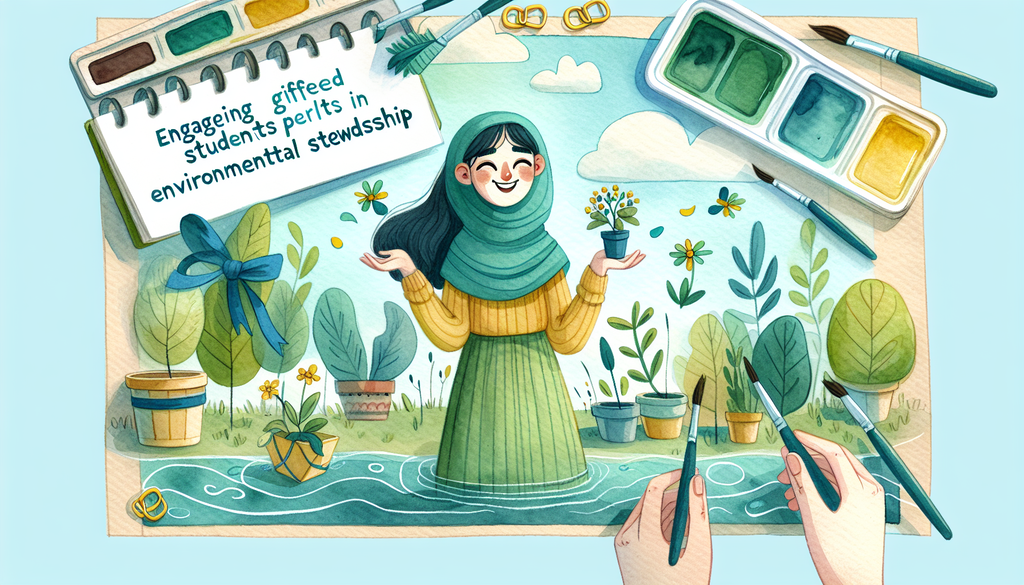Engaging Gifted Students in Environmental Stewardship

Every child comes with unique talents and abilities, and nurturing those talents requires specific strategies and considerations. This is especially true for students identified as gifted; a focus on intuitive and experiential learning processes can be enriching and Productive. One such way to engage gifted children’s intellectual curiosity and inquisitive nature is through environmental stewardship.
Environmental stewardship is an approach towards the environment where individuals, communities, and organizations actively participate in preserving health, diversity, and productivity of the environment. This concept promotes a sense of caring for the environment and encourages active engagement in its protection. Moreover, engaging gifted students in environmental stewardship can complement their academic prowess and help them channel their inquisitive minds towards a noble cause. Here, we explore strategies to implement environmental stewardship among gifted students, nurturing their passion for sustainability and science.
Practical Applications of Environmental Stewardship
For gifted students, the acquisition of knowledge is not the end goal but a medium to explore their intellectual curiosity. Hence, incorporating project-based learning in activities related to the environment can be insightful. Not to undermine the importance of textbook knowledge, but practical applications have a profound impact on students’ understanding of scientific concepts and their implications, developing a deeper appreciation and empathy towards Mother Nature.
Some of the practical applications that teachers and parents can introduce include:
-
Community garden projects: Empower students to create a community garden from scratch. This hands-on task will encourage students to blend their creativity with scientific knowledge about soil, water, and energy conservation.
-
Wildlife observation and species identification: Organize field trips where students can learn about ethical wildlife observation and develop their understanding of various species and biodiversity.
-
Trash management seminars: Allow students to plan and conduct community seminars focused on teaching sustainable trash management practices. This benefits the community and the students, fostering a deeper sense of social responsibility.
-
Creating and maintaining a compost pile: This is a simple and highly educational task that encourages gifted students to learn about microorganisms’ roles in breaking down organic materials.
These activities go beyond the classroom walls and textbooks, thereby plunging students into the real world, a world where their contributions matter.
Collaborative Learning
The strategies mentioned above thrive when implemented as a group. Collaborative activities create a dynamic environment where students can learn from each other, polish their interpersonal skills, and adapt to the art of cooperation. Also, not to forget, every student can be a leader, but it takes courage to step back and let others lead. Hence, collaborative learning emphasizes nurturing leadership qualities and followership.
Giftedness is not all about intelligence; it also implies managing their emotional sensitivities and regulating their emotional responses. Activities that involve collective effort place gifted students in situations where they need to manage their emotions effectively, thereby improving their emotional intelligence.
Conclusion
Engaging gifted students in environmental stewardship serves multiple purposes - nurturing their intellect, helping them contribute to the environment, and aiding their social and emotional development. Such experiential learning also impacts their overall personality, preparing them for holistic growth and future leadership roles.
Remember, as parents and educators, your role in nurturing the gifted child’s talent and potential is paramount. A deeper understanding of your child’s needs and capabilities can result in creating an enriching and nurturing environment for their growth. You might want to read The Reality of Raising a Gifted Child for further insights and support.
Engage in discussions, plan these activities together, and most importantly, enjoy this journey with your gifted child. Celebrate little victories, acknowledge their efforts, and ensure they understand their unique abilities and potential.